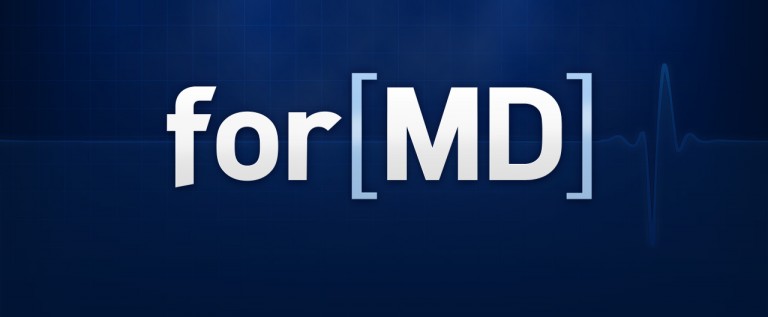The Plunge: What Keeps You Motivated?

As I take a step away from my computer I glance at the time.
It’s 4 AM.
Already?
Recently, this has been happening a bit too frequently. The days and nights have been passing by quicker with each week and with good reason. forMD has been progressing nicely. With organizations representing 20 percent of our first target market nationally committed to our site, the priorities are beginning to shift. Instead of working solely on proving our concept, we’re beginning to focus more on how to scale quickly.
As the time continues to fly by I’m reminded of a conversation that’s become rather common. It’s especially common when I recount my mornings starting as early as 7:30 AM and workdays extending into the wee hours of the night.
“What keeps you motivated?” one of my friends asked me earlier that day.
As I recall the question, I glance over at a picture of my friend and I sitting on my dresser. Painfully, the picture doesn’t evoke good memories.
In 2006, my friend, who we’ll call John to keep his identity private, passed away from cancer. A friend and former mentor, John was the rare combination of a man whose accomplishments in life were equaled only by the size of his heart and the impact he had in his relationships. In the wake of his untimely death, I discovered that the true cause of his tragedy wasn’t the cancer at all. Rather, it was medical negligence. Struggling to keep up with changing dynamics in the American health care system, his physician simply forgot to read his colorectal cancer screening. But how could this have happened?
Unfortunately, doctors in the United States aren’t paid based on the quality of care their patients receive, but rather the amount of care provided. For example, your doctor isn’t paid based on whether the test they ordered was the most appropriate one to do a diagnosis, but only that they ordered and performed that test. To make matters worse, reimbursement per patient has declined steadily over the years. As an unintended consequence of this system, physicians continue to spend less time with the patient. And in the case of my friend, it was an inadequate and unsafe amount of time. Outside experts would later determine that had his physician actually read the screening, my friend’s cancer would have been wholly treatable and his death preventable.
Like most other Americans ten years ago, I had thought that our health care system was amongst the best in the world. To my knowledge, unrivaled technology, the brightest medical minds, and the world’s best hospitals all combined to create the best country in the world to get health care. But when my friend passed away, it was a rude awakening. With a bit of research, I quickly discovered what health policy experts already knew very plainly. The U.S. health care system is irreparably broken.
With the highest cost per capita of any country, the United States also sees some of the most mediocre health outcomes. In looking at mortality rate, infant mortality, and other common indices measuring the health of large populations, the United States ranks in the middle of the pack, calling countries like Chile, South Korea, and Cuba its peers. Ever since that realization I have been searching for a way to help our broken health care system evolve.

The U.S. spends more per capita on health care than any of its peer countries. Source: Organisation for Economic Co-operation and Development (2010), “OECD Health Data”, OECD Health Statistics.
With forMD I have an opportunity to make an immediate, positive impact in the U.S. health care system. We’re making it easier and more efficient for physicians to communicate with their organizations and on a peer-to-peer level, all of which saves them time and money that can be spent taking care of patients instead. Recently one of our users told us, “In 3 hours I can now get information that used to take me 3 months.”
So, whenever I ask myself the question, “what keeps you motivated?” I look to my dresser and see the picture of my friend John. And that’s all it takes to keep me going.





